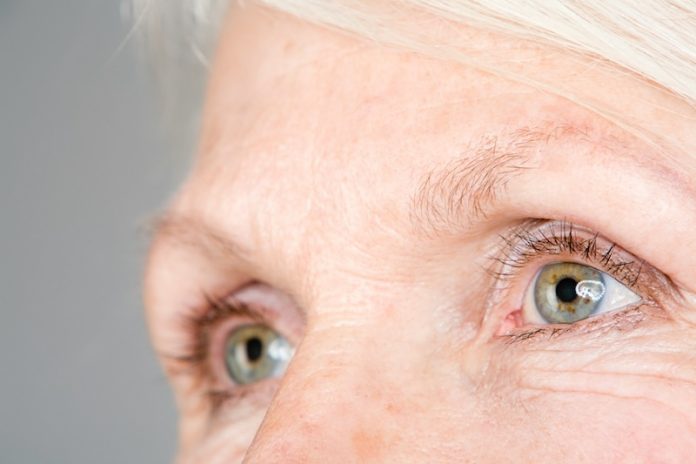
New research suggests that older women may be more vulnerable to harmful inflammation from gene therapy treatments for incurable eye diseases. A study led by the University of Bristol, published in Molecular Therapy, highlights how age and gender influence the body’s response to these treatments, potentially leading to eye damage.
This discovery could help improve the safety and effectiveness of gene therapy for vision-related conditions and emphasizes the need for personalized treatment plans to minimize risks.
The Promise and Challenge of Gene Therapy for Eye Diseases
In the U.K., around 2 million people live with sight loss, with over a million experiencing irreversible blindness or partial vision loss due to conditions such as age-related macular degeneration, glaucoma, and diabetic eye disease. While many of these diseases were once considered untreatable, gene therapy has shown promise in restoring lost function.
Gene therapy uses a harmless virus, known as Adeno-Associated Virus (AAV), to deliver healthy genes into the cells at the back of the eye. These genes help cells function properly, preventing further vision loss. However, clinical trials have revealed unexpected inflammation in some patients, sometimes worsening their vision instead of improving it.
Scientists believe this inflammation occurs because the body’s immune system mistakenly identifies the virus used in the therapy as a threat. The immune response can either directly cause eye damage or make it difficult to adjust the dose for better treatment results. Researchers at Bristol set out to understand these immune responses better to make gene therapy safer for all patients.
How the Study Was Conducted
The research team tested how eye cells from male and female animals of different ages (young, middle-aged, and older) responded to AAV gene therapy. They specifically looked at the immune system’s reaction to the therapy, rather than the underlying eye disease itself.
The results showed that while young male and female eye cells had a similar short-term immune response, their reactions at the molecular and cellular levels were different. As the cells aged, inflammation lasted longer and became more severe in both genders.
However, a key finding was that older female cells had a much stronger inflammatory response, which was linked to signs of retinal damage.
Unlike older male eye cells, which showed a consistent immune response pattern, older female eye cells appeared to experience more stress and a heightened inflammatory reaction. This suggests that older women undergoing gene therapy for eye diseases could be at a higher risk of experiencing harmful side effects, potentially leading to vision loss.
Implications for Future Treatments
Dr. Alison Clare, the study’s lead author, stressed the importance of considering a patient’s age and gender when prescribing gene therapy.
“Our findings are the first to demonstrate that age and sex influence the risk of serious inflammatory reactions in the eye following gene therapy,” she said. “This highlights the need to separate patients based on these factors to ensure safer treatment.”
She also noted that while gene therapy is a promising treatment for many eye diseases, there must be a careful balance between its potential benefits and the risks it carries, particularly for older women.
Looking Ahead
This research could lead to significant improvements in how gene therapy is used to treat eye diseases. Doctors may need to tailor treatments based on a patient’s age and gender to minimize the risk of severe inflammation. Future studies will likely focus on ways to manage these immune responses, making gene therapy a safer option for all patients.
As gene therapy continues to evolve, understanding how different groups of patients respond will be crucial in ensuring that treatments are both effective and safe. This study serves as an important step toward making personalized medicine a reality for those suffering from vision loss.
If you care about hearing loss, please read studies about antibiotic drug that can lead to hearing loss, and whether you should get an hearing aid or see a specialist.
If you care about dementia, please read studies about how the Mediterranean diet could protect your brain health, and these antioxidants could help reduce dementia risk.
The research findings can be found in Molecular Therapy.
Copyright © 2025 Knowridge Science Report. All rights reserved.



